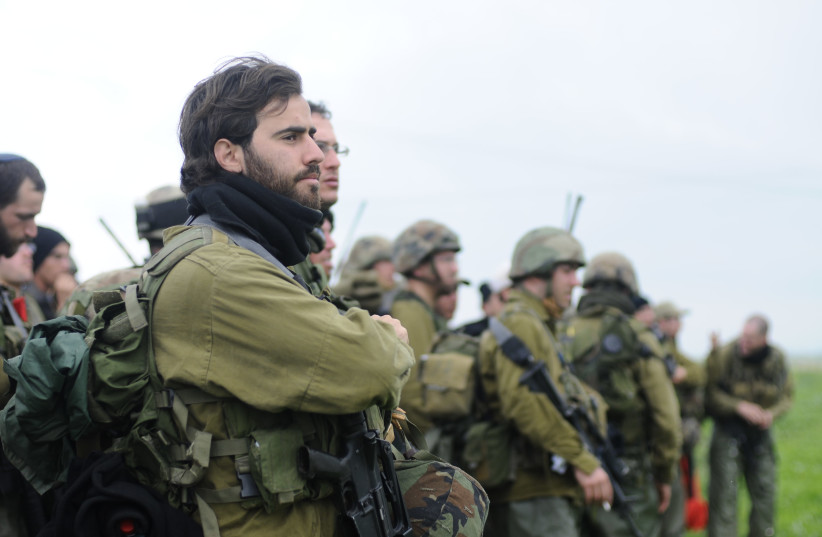IDF reservist reflects on Gaza war experiences – comment
At about 10 a.m. on Friday morning, December 15, one of our battalions reported via radio that it had shot and killed three Hamas fighters.
These sorts of reports were quite frequent at headquarters, and business continued as usual.
An hour and a half later, however, I began to notice unusual activity in our logistics compound. My commander began to hold a number of whispered conversations with some of his superiors.
When he beckoned the brigade’s rabbi over for a hushed conversation, I knew something was up.
I joined my reserve unit, the IDF’s 828th infantry brigade, on October 22, and remained until early January. I served at the brigade’s field headquarters near Netivot. The headquarters consist of two main compounds: one for operations, the other for logistics, known as the MALKA, a Hebrew acronym for “Logistics and Personnel Center.”
Experiences as a reservist during the war
The MALKA was headed by the brigade’s chief logistics officer and his deputy; I served as the MALKA’s operations officer, serving as a liaison between the MALKA and the brigade’s operations compound, and responsible chiefly for making sure that everyone in the MALKA was up to date on what was happening to the troops on the ground in Gaza at any given moment.

The MALKA included six cells, which were manned by soldiers or officers in 12-hour shifts: The logistics cell, responsible for the supply of food, water, equipment, and ammunition to the troops in Gaza; the technical cell, responsible for fixing everything from guns and scopes, and electric generators to armored tractors; the human resources cell, responsible for knowing who in the brigade was where at any given time (no easy feat), as well as drafting reservists or specific personnel when necessary; the medical cell, responsible chiefly for coordinating evacuations of casualties; a cell intended specifically to deal with cases of MIAs (soldiers who go missing in action); and the rabbinic cell, responsible for treatment of the bodies of soldiers killed in action.
We all knew, therefore, that when the rabbi became involved, something bad had happened.
By noon on that Friday, word began to spread that one of the three dead Hamas fighters had actually been an Israeli hostage. The news was terrible, but my fellow soldiers and I reasoned that the two Hamas fighters were guarding the hostage, and that our troops had probably come under fire and responded instinctively, unfortunately without the knowledge that one of three was an Israeli.
The details remained vague, and the incident was quickly put under censorship – no one was to talk about it or spread any information. With a heavy heart, we settled in for the rest of our shift. I headed home to Jerusalem that evening, as I did between most shifts – I was lucky to be part of a three-man rotation, so that after every 12-hour shift I was off for 24 hours.
Then, at 8 p.m., IDF Spokesperson Daniel Hagari announced on live television that the IDF had tragically killed three – not one – hostages: Yotam Hayim, Alon Shimriz, and Samer Talalka.
I felt as though I had been punched in the gut. In the days following, it became apparent, as was broadly reported, that the three had managed to escape their guards; that they had not shot at our troops, and had actually attempted to motion to them that they were civilians; and that what could have been a national morale-lifting incident had ended in disaster.
The IDF investigation later also showed that there had been preliminary signs that hostages were in the area, but concluded that the complexity of the situation, along with the fact that intelligence earlier that day had indicated a threat of Hamas fighters in civilian clothes, led to the tragic consequences.
By the time I arrived at my next shift the following day, things were back to normal.
Reflecting back, I find it uncanny how quickly the gut-wrenching experience retreated to the background; how, during emergencies, incidents that in normal times would be extraordinary, quickly disappeared in the rear-view mirror as the brigade moved on to its next missions.
Just two weeks later, the 828th brigade left Gaza, and its reservists were sent home.





Comments are closed.